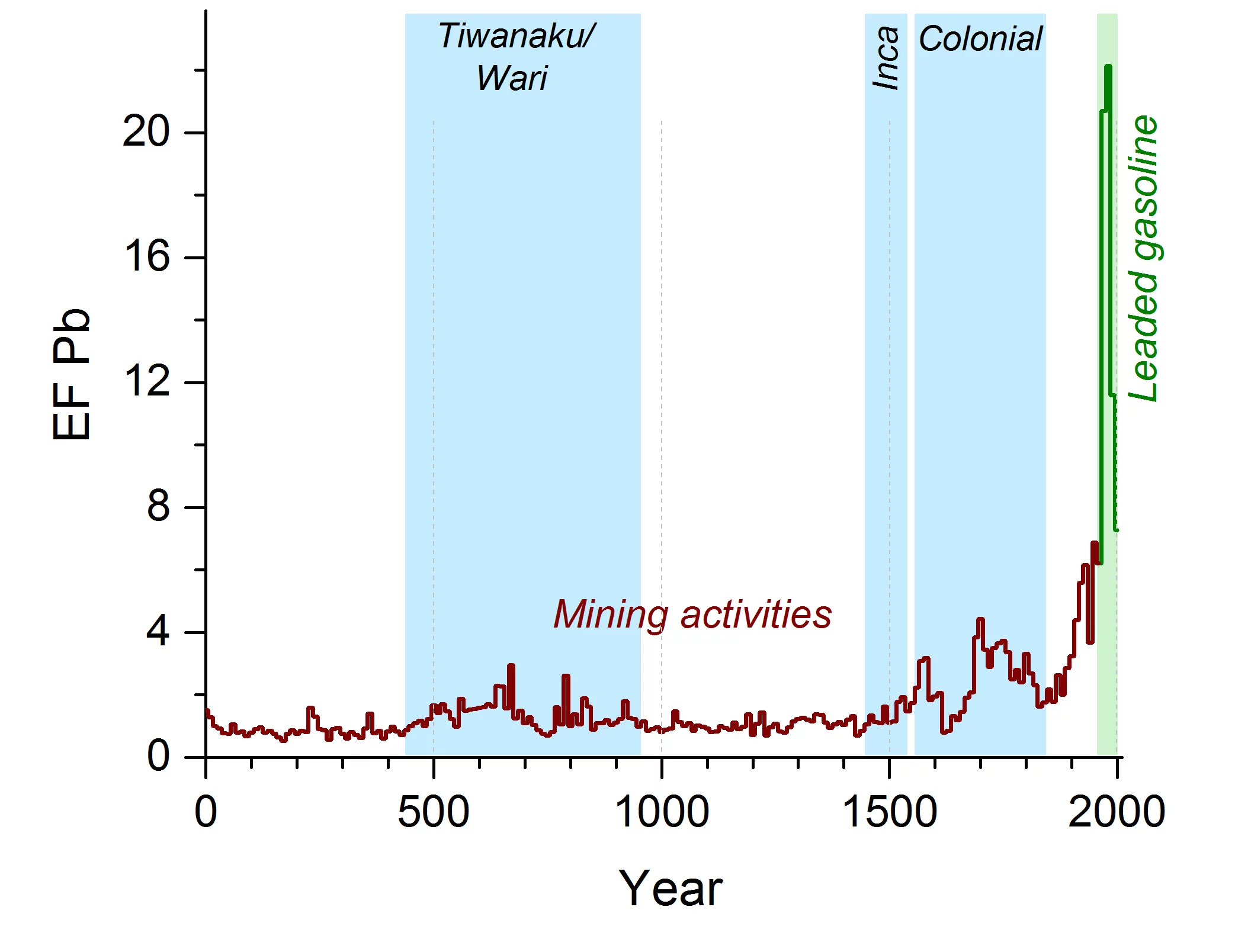Research Division Biology and Chemistry (BIO), Analytical Chemistry Group, Head Margit Schwikowski
. Exploitation of the extensive polymetallic deposits of the Andean Altiplano in South America since precolonial times has caused substantial emissions of neurotoxic lead (Pb) into the atmosphere; however, its historical significance compared to recent Pb pollution from leaded gasoline is not yet resolved. We present a comprehensive Pb emission history for the last two millennia for South America, based on a continuous, high-resolution, ice core record from Illimani glacier. Illimani is the highest mountain of the eastern Bolivian Andes and is located at the northeastern margin of the Andean Altiplano. The ice core Pb deposition history revealed enhanced Pb enrichment factors (EFs) due to metallurgical processing for silver production during periods of the Tiwanaku/Wari culture (AD 450–950), the Inca empires (AD 1450–1532), colonial times (AD 1532–1900), and tin production at the beginning of the 20th century. After the 1960s, Pb EFs increased by a factor of 3 compared to the emission level from metal production, which we attribute to gasoline-related Pb emissions. Our results show that anthropogenic Pb pollution levels from road traffic in South America exceed those of any historical metallurgy in the last two millennia, even in regions with exceptional high local metallurgical activity.
Publication: http://dx.doi.org/10.1126/sciadv.1400196
Additional Information & Contact: Media Release
Further publications: LUC Homepage

